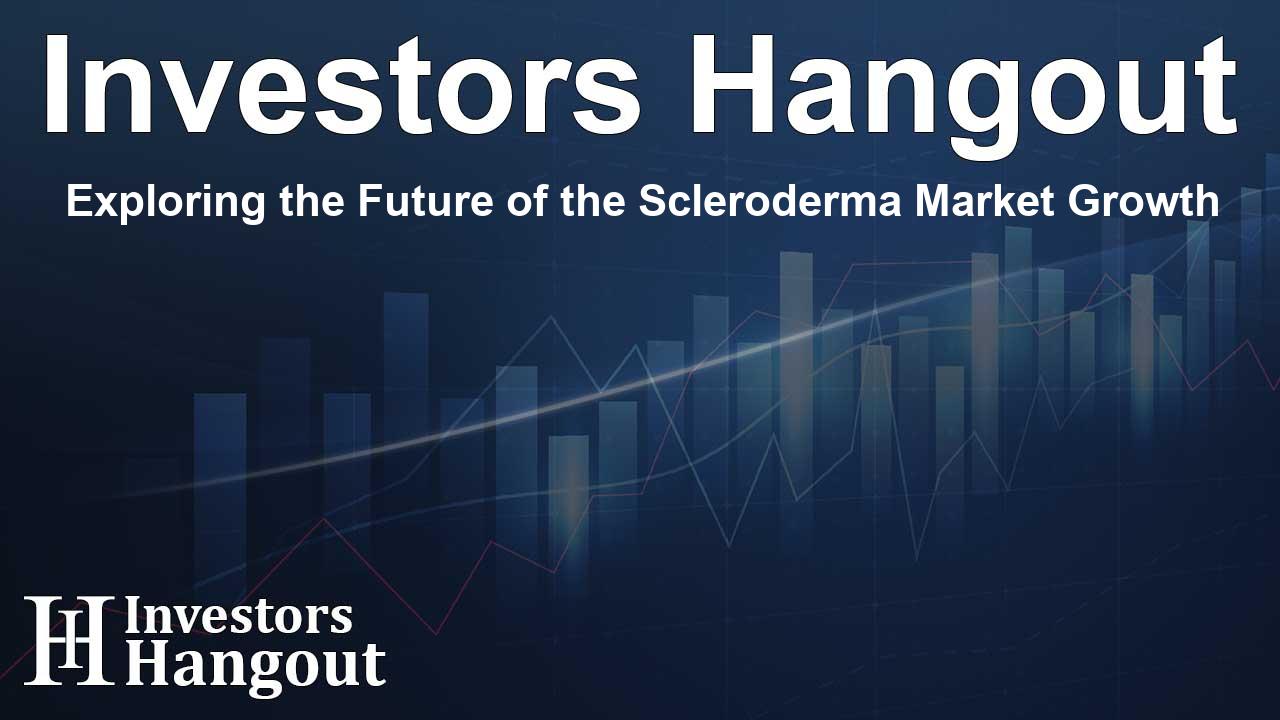Exploring the Future of the Scleroderma Market Growth

The Future of the Scleroderma Market
Recent insights project that the scleroderma market will grow from US$ 2,384.73 million to an impressive US$ 4,103.07 million over the coming years. This growth is a response to innovative advancements in biologics, targeted therapies, and early diagnostic pathways that are transforming patient outcomes.
Understanding Scleroderma
Scleroderma is a challenging autoimmune disease that leads to skin thickening and fibrosis of internal organs. Historically, treatment options were limited, primarily focusing on immunosuppressants and palliative measures. However, the current landscape is changing dramatically. Pharmaceutical companies are increasingly investing in disease-modifying therapies that address the fundamental fibrotic processes, while collaborations with biotechnology firms are enhancing the approach to precision medicine.
Market Dynamics Influencing Growth
The rising prevalence of autoimmune disorders and better disease awareness are driving the growth of the scleroderma market. An encouraging regulatory environment supports a range of therapies aimed at scleroderma, setting the stage for significant market expansion in the next decade.
Market Segmentation Insights
In terms of disease type, systemic scleroderma accounted for over 65% of the market revenue in 2024, generating approximately US$ 1.55 billion. This form of the disease presents serious complications affecting vital organs like the lungs and kidneys, making it a significant focus of research. Conversely, localized scleroderma, although less severe, represented a revenue share of 35% at US$ 835 million, highlighting the demand for effective topical treatments.
Breakdown by Treatment Approaches
Medication therapies alone contributed US$ 1.9 billion in 2024, with biologics and antifibrotic medications leading the way in prescriptions. Additionally, surgical interventions valued at US$ 280 million continue to be crucial for severe cases involving substantial organ damage.
Regional Market Insights
The United States, valued at US$ 960 million in 2024, leads the global market. This dominance stems from a high prevalence of autoimmune diseases affecting hundreds of thousands, alongside strong R&D pipelines for new therapeutic options. Positive developments in clinical trials, such as advancements by leading pharmaceutical companies, are key drivers of growth.
Japan's Growing Market
Japan is also witnessing growth, with its market hitting US$ 210 million in 2024. Factors such as an aging population and government incentives for rare disease drug development under the Orphan Drug Designation system are accelerating this market's expansion.
Industry Trends and Developments
Several key trends are shaping the scleroderma treatment landscape. The rise of biologics, progressive combination therapies, and advancements in stem cell technology are revolutionizing patient care options. Notably, digital diagnostics powered by AI are enabling earlier disease detection and tailored treatments, which may improve outcomes significantly.
Competitive Landscape
Major players like F. Hoffmann-La Roche Ltd, Boehringer Ingelheim, and GSK plc are at the forefront of developing new treatments. Their ongoing innovation efforts keep them competitive, focusing on therapies that modify disease progression and improve patient quality of life.
Strategic Considerations
The scleroderma market stands at a pivotal moment, with key trends likely to define its trajectory. Anticipated advancements in biologics and antifibrotic therapies are expected to diminish reliance on traditional immunosuppressants, while regulatory support will facilitate quicker approvals of novel therapies. Ensuring robust partnerships between pharmaceutical and biotech firms will be vital for ongoing innovation.
Conclusion
The projection that the scleroderma market will surge to US$ 4,103.07 million is a testament to the transformative changes occurring within the field. With sustained efforts from healthcare providers, innovators, and investors, the focus on improving therapies for these rare conditions offers a hopeful narrative for the future of patient care.
Frequently Asked Questions
What is scleroderma?
Scleroderma is a rare autoimmune disease that results in skin thickening and organ fibrosis, creating significant health challenges for patients.
What growth is expected in the scleroderma market by 2033?
The scleroderma market is expected to grow from US$ 2,384.73 million to US$ 4,103.07 million by 2033, showcasing significant advancements in treatment options.
What are the primary treatment options for scleroderma?
Primary treatment options include medication therapies like immunosuppressants, biologics, antifibrotic drugs, and surgical interventions in severe cases.
Which regions are leading in scleroderma treatment development?
The United States and Japan are key leaders in the scleroderma treatment market due to high disease prevalence and strong regulatory support for new therapies.
What are current trends in the scleroderma market?
Current trends include the rise of biologics, combination therapies, advancements in digital diagnostics, and an overall shift towards precision medicine.
About The Author
Contact Lucas Young privately here. Or send an email with ATTN: Lucas Young as the subject to contact@investorshangout.com.
About Investors Hangout
Investors Hangout is a leading online stock forum for financial discussion and learning, offering a wide range of free tools and resources. It draws in traders of all levels, who exchange market knowledge, investigate trading tactics, and keep an eye on industry developments in real time. Featuring financial articles, stock message boards, quotes, charts, company profiles, and live news updates. Through cooperative learning and a wealth of informational resources, it helps users from novices creating their first portfolios to experts honing their techniques. Join Investors Hangout today: https://investorshangout.com/
The content of this article is based on factual, publicly available information and does not represent legal, financial, or investment advice. Investors Hangout does not offer financial advice, and the author is not a licensed financial advisor. Consult a qualified advisor before making any financial or investment decisions based on this article. This article should not be considered advice to purchase, sell, or hold any securities or other investments. If any of the material provided here is inaccurate, please contact us for corrections.
